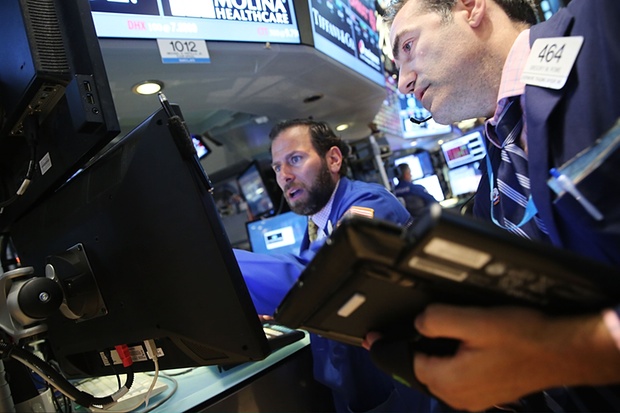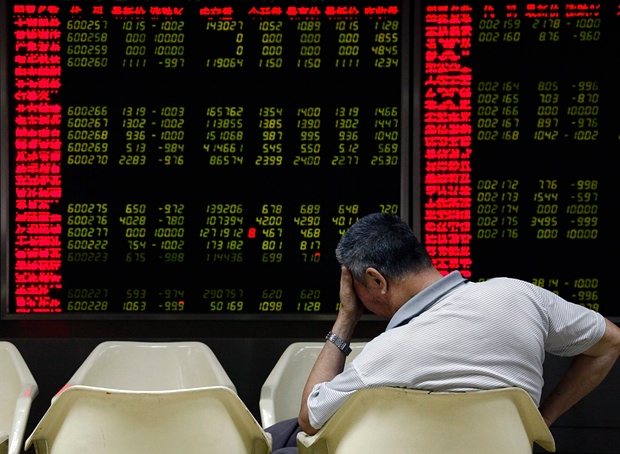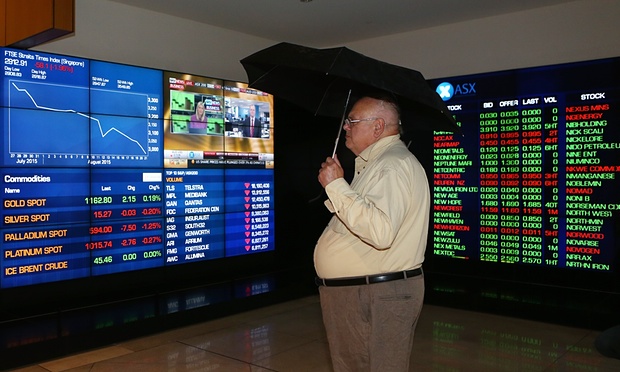In a show of volatility that only Bitcoin users and some third world countries are really used to, markets around the world have seen falls in price of up to 10% over Monday and early Tuesday.
Global market meltdown
Rupert Neate of The Guardian reports:
“US stock markets collapsed on Monday continuing a global stock market rout that has wiped hundreds of billions of dollars off shares across the world.
The Dow Jones Industrial Average dropped by 6.4%, the S&P 500 dropped 4%, and the Nasdaq lost 8.5% raising fears that a fresh tech bubble has burst. The drops followed already-heavy falls last week.”
The most affected stocks in America were Facebook, losing 14% at one point and Apple going 11% under, though they recovered back into positive numbers soon after.
Here's a summery of the events from The Guardian.
- The US stock market has suffered its biggest sell-off in four years. The Dow Jones ended the day down 588 points, having shed more than 1,000 points in early trading.
- The S&P 500 and Nasdaq are both in correction territory tonight, down 10% on their recent peaks.
- In London, almost £74bn was wiped off the value of the FTSE 100 index, in a rout led by mining giants.
- European stock markets suffered their worst days trading since 2011.
- The selloff began in Asia 19 hours ago, where Australia’s market suffered its biggest fall since 2009 and Japan’s Nikkei slumped over 4%.
- But China was the worst hit, with the Shanghai composite index dropping 8.5% in the biggest selloff since 2007.
China’s benchmark Shanghai Composite index at one point pushed its losses to 41% effectively wiping all gains made since June, 2015.
Various Saudi Arabian indexes and stocks also saw falls of close to 10%. According to UK's Business Insider:
“The falls across the region come after oil prices slid to new lows during trade Friday, with New York's light sweet crude plunging to US$40.04 per barrel, the lowest level since March 2009.”
‘08 all over again?
The crash and volatility comes stunningly close to the 7 year prediction cycle brought to notoriety by Armstrong Economics, which seems to accurately predict market instability and crashes. The last “Shemitah” was in 2008, right around the birth of Bitcoin and the last financial crisis.
 |
The general explanation for this phenomena is that deep within the Jewish tradition there’s a cultural habit of settling debts every 7 years. The expectation that debts are to be paid every 7 years could create a decentralized consensus, a social mechanism, where you might as well go along with convention rather then try to swim against the current.
Some, of course, are predicting the worst and given how many nation states and massive markets are crashing or defaulting (Greece, Puerto Rico, China etc.), they have a point.
Here is some political analysis of this world market's volatility by independent media organization We Are Change.
What ever the case may be, one thing is for certain. Stock market crashes can result in some hilarious photographs.






